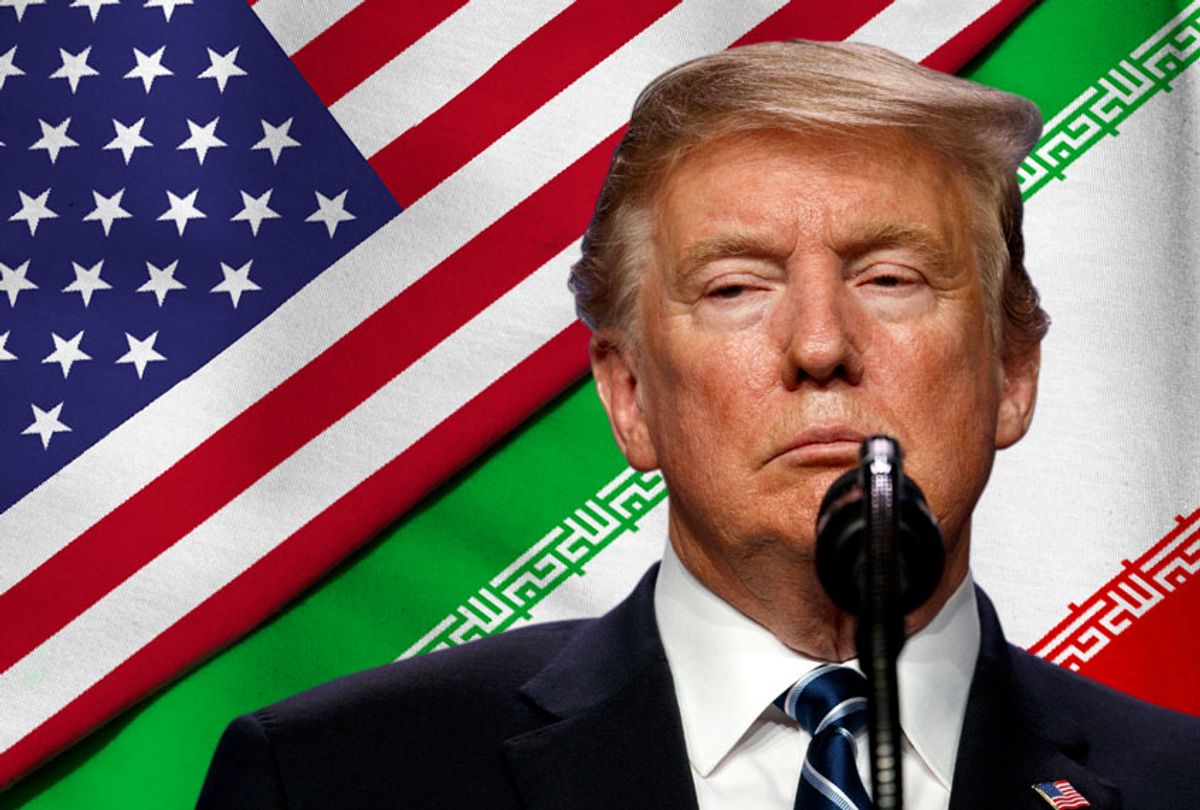According to a report at Politico, world leaders are turning their backs on Donald Trump’s attempt to build a coalition against Iran, which is, in turn, forcing the Pentagon to make their own appeals for military support in the Middle East.
Calling it a “coalition of one,” Politico reports that the Trump administration is seeking international help to protect oil tankers from “alleged Iranian aggression” and they are coming up empty-handed.
“The British have demurred, the French are noncommittal and the Germans on Wednesday flat out said no. They’re all still smarting from the president’s exit from the 2015 Iran nuclear deal, which they say is partly responsible for Tehran’s suspected bellicose behavior,” the report states. “They’re also worried that aligning with the U.S. on such an initiative could drag them into a war with Iran. Those concerns have only risen this week after Trump imposed sanctions on Iran’s foreign minister.”
In an email, Nathalie Tocci, special adviser to European Union foreign policy chief Federica Mogherini, explained, “Clearly, a military operation in the Gulf would increase exponentially the potential triggers for a confrontation with Iran. So long as [Europeans] see a chance of freedom of navigation being secured through dialogue and diplomacy with Iran, they will opt for this route.”
The Pentagon, which has dubbed this latest Middle East initiative ‘Operation Sentinel,” has issued a statement saying that they have reached an agreement with several other countries for support, but are refusing to say which ones they are.
“More than 60 countries have been invited to join, according to the Pentagon, and analysts say some regional powers, such as the United Arab Emirates and Saudi Arabia, might join the effort,” the report states, with the Pentagon issuing a formal statement saying: “Because discussions are ongoing, it would be premature and inappropriate to speculate or comment on the status of individual nations and the nature of any potential support.“
The inability to get other countries to back up the U.S. has caused some members of the Trump administration to snap.
“On Wednesday, German Foreign Minister Heiko Maas said his country ‘will not take part in the sea mission presented and planned by the United States.’ Maas added that Germany was coordinating closely with France, which has resisted the U.S. campaign as well,” Politico reports which caused U.S. Ambassador to Germany Richard Grenell to complain, “America has sacrificed a lot to help Germany remain a part of the West.”
The report also points out that it is notable that erstwhile U.S. ally Britain is also keeping its distance.
“British officials said last month they would prefer to build a European-led maritime protection force in the Gulf. While that may change given that Britain now has a new prime minister, Boris Johnson, who has tried to curry favor with Trump, the initial reaction spoke to the strains between London and Washington under Trump,” the report states.
You can read more here.



Shares